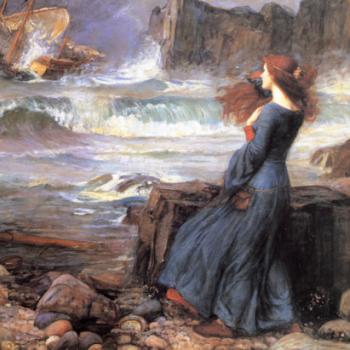Your favorite television show must do an episode based on it.
It will not be good.
There are numerous movie versions of it: the one with the Muppets is best.
And then there is the short story that started it all: A Christmas Carol.
I have read it more times than I can count, because it is very good. One read is for the plot, every read thereafter is a lesson is English, history, and theology.
What more can you want?
The story begins with death and ends with life and is the story of the aptly named Ebenezer Scrooge. “Ebenezer” is a hymn staple: God helps . . . and God does help Mr. Scrooge. The name Scrooge signals his need for that help. Scrooge was a tight old screw that Scrooge gave his name to scrooges.
The first things Dickens tells us of Mr. Scrooge is that he is an honest man of business: a rarity in his and our time. Honesty and minding his own business is not, however, enough. Ayn Rand not with standing Mr. Scrooge is a bad man. Every Christmas some moral idiot attempts to show that he is not such a bad sort and if money making were the only test, then he is not.
Mr. Scrooge is fine at business, but bad as a man. Somehow this story of the Christ mass has been called “secular,” but Scrooge is described as a sinner. What he does is not illegal, and perhaps should not be illegal but Mr. Scrooge is an immoral man. He lacks charity and mercy and this is wrong. The government, of course, cannot and should not command charity. Who would trust a sheriff with a law that said: “Be nice.” but nice we must be.
Scrooge is not nice and the City is worse for it.
If George Bailey discovers that being decent, merciful, and loving can make any life wonderful, then Scrooge will discover that he has lived A Wicked Life.
It wasn’t merely that he was stingy, though from modern adaptations, you would think it his chief fault. Scrooge’s problem was that he minded his own business, a virtue to a point, but only his own business. He left you alone, even when he should not have done so. If Scrooge saw a man injured in the street, he would pass to the other side.
Scrooge kept “human sympathy” at a distance.
Dickens could take Christianity for granted in his readership. Catholic, Anglican, or Wesleyan would sum up his audiences moral vision and none of them would for a moment think that being greedy was good. They might be greedy, were often greedy, but if you rebuked them as hypocrites, most would admit to a problem.
Victorians might disagree about how to show charity, but charity must be shown.
And that is a problem that faces our culture today.
We have actually bred Christians who forget that they must love their neighbor and that if their neighbor is starving that it really is their business. Human welfare is our business. If technology gives us a view of too many people at the side of the road for us to meet every need we “see,” our local lives still provide many chances for charity.
I may not be able to help every poor person I “know of,” but I can help the poor I meet. Of course, some of the “poor” are poor in spirit, a far worse problem. Scrooge cannot be bothered to say a cheery word, but surely some jollification has helped as many people as a gift? Nor are we talking about forced jolliness, like the frightening, laughing Santa-doll that “Ho-ho-ho’s” continuously driving even a sane man to thoughts of knives.
Instead, real cheer must come, not from a bottle or a movie, but from a charitable soul. The man would would give you money if you needed it with a glad hand can give you a “Merry Christmas” when you want it as well.
It is bad to be Scrooge. God help me this Advent, as I count down the days to Christmas, to prepare to spread jollity where jollity is needed.












